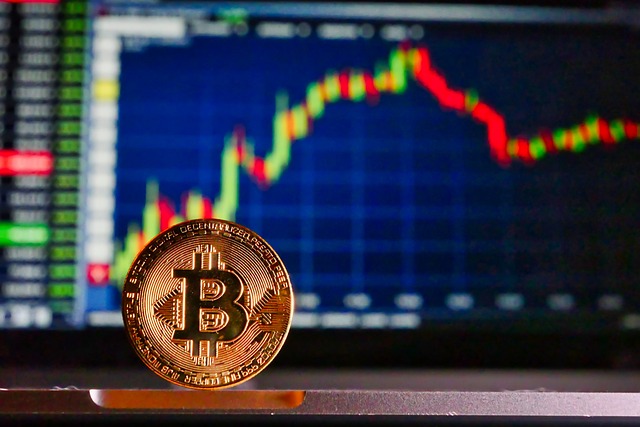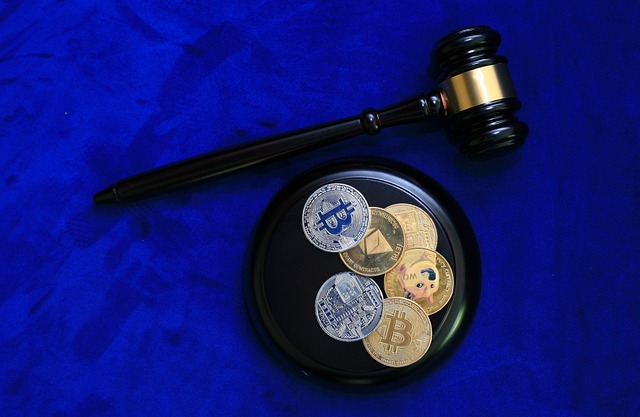The Ultimate Guide to Crypto Exchanges
Author: Jameson Richman Expert
Published On: 2025-01-26
Prepared by Jameson Richman and our team of experts with over a decade of experience in cryptocurrency and digital asset analysis. Learn more about us.
In recent years, cryptocurrency has transitioned from a niche market to a mainstream phenomenon. With the surge in interest, the need for reliable platforms to buy, sell, and trade digital assets has never been greater. One of the key components of the cryptocurrency ecosystem is crypto exchanges. In this article, we aim to provide a comprehensive guide to crypto exchanges, covering everything from how they work to tips for selecting the right platform for your trading needs.

What is a Crypto Exchange?
A crypto exchange is a digital marketplace where traders can buy, sell, or exchange cryptocurrencies for other digital currency or traditional currency like US dollars or Euro. Cryptocurrency exchanges facilitate the trading of various digital assets, making it easier for users to acquire the cryptocurrencies they want.
Types of Crypto Exchanges
There are primarily two types of cryptocurrency exchanges: centralized and decentralized.
Centralized Exchanges
Centralized exchanges (CEX) are platforms operated by companies that act as intermediaries between buyers and sellers. Some key features of CEXs include:
- User-Friendly Interface: Centralized exchanges tend to offer intuitive interfaces, which make them suitable for both beginners and experienced traders.
- High Liquidity: They generally have a larger user base, which provides high liquidity. This means users can buy and sell assets quickly without significantly affecting the market price.
- Customer Support: Centralized exchanges usually offer customer support services to assist users with their inquiries and issues.
Examples of popular centralized exchanges include Binance, Coinbase, and Kraken.
Decentralized Exchanges
Decentralized exchanges (DEX) operate without an intermediary. Instead, they allow users to trade directly with each other through an automated process. Some benefits of DEXs include:
- Privacy and Security: Users retain greater control over their funds and personal information, as there’s typically no need for a centralized authority to manage their data.
- Less Regulation: DEXs often have fewer regulatory obstacles, making it easier to trade a wider range of assets.
- Global Access: Users can engage in trades without the limitations usually imposed by their country of residence.
Examples of popular decentralized exchanges include Uniswap, SushiSwap, and PancakeSwap.
How Crypto Exchanges Work
Understanding how crypto exchanges operate is vital for anyone looking to delve into trading. Below is a general overview of the crypto exchange process:
- Registration: To start trading on a centralized exchange, you must create an account. This usually involves providing personal information such as your email address, phone number, and sometimes even identity verification.
- Depositing Funds: Once your account is set up, you can deposit funds. Depending on the platform, you can deposit cryptocurrencies or fiat currencies.
- Placing Orders: After funding your account, you can place orders to buy or sell cryptocurrencies. Orders can be market orders (executed at the current market price) or limit orders (executed only at a specific price).
- Trading: Finally, when your orders are executed, your transactions are recorded on the blockchain, and you will see the change in your account balance almost instantly.
- Withdrawing Funds: When you're ready to cash out or transfer your cryptocurrency to an external wallet, you can initiate a withdrawal through the exchange.

Factors to Consider When Choosing a Crypto Exchange
Selecting the right crypto exchange is vital for your trading experience. Here are some important factors to consider:
Security
Security should be your top priority. Look for exchanges that offer two-factor authentication, cold storage for digital assets, and a strong security history. The less you risk losing your funds, the more peace of mind you will have while trading.
User Experience
Choose a platform that offers an intuitive and user-friendly interface. This will make your trading experience smoother, especially if you’re a beginner.
Supported Assets
Depending on your trading strategy, you may want to choose an exchange that supports a wide variety of cryptocurrencies. Some exchanges focus on popular coins like Bitcoin and Ethereum, while others may offer a broader selection, including niche altcoins.
Fees
Different exchanges have different fee structures. Make sure to check transaction fees, deposit and withdrawal fees, and any other costs associated with using the platform. Some exchanges also offer trading fee discounts for high-volume traders.
Liquidity
High liquidity generally means you can buy and sell cryptocurrencies more easily at stable prices. It’s crucial to select an exchange with a large user base if you plan to trade frequently.
Customer Support
Access to customer support can be a game changer, especially when you encounter issues. Prioritize exchanges that offer robust customer support options, including live chat, email, and comprehensive help centers.
How to Get Started with Crypto Exchanges
If you're ready to dive into the world of cryptocurrency trading, here are step-by-step instructions to get you started:
1. Create an Account
Follow the registration process on your chosen exchange. For users looking to start on Binance, you can sign up by visiting here. Make sure to complete any verification processes required.
2. Secure Your Account
Once registered, it's essential to set up two-factor authentication and any additional security measures the exchange provides.
3. Deposit Funds
Deposit funds into your trading account through wire transfer, credit card, or depositing cryptocurrencies from another wallet.
4. Start Trading
Begin trading by either purchasing cryptocurrency directly or engaging in market trading by placing buy/sell orders.
5. Withdraw Your Earnings
When you want to secure your profits, you can withdraw your funds. It’s typically a straightforward process, but always double-check your withdrawal addresses.
The Future of Crypto Exchanges
The landscape of cryptocurrency exchanges continues to evolve. Trends such as decentralized finance (DeFi), automated market makers (AMMs), and increased regulatory scrutiny are shaping the future of how these platforms operate. As the industry matures, we may see more user-friendly solutions and innovative features aimed at enhancing user experience.

Conclusion
Crypto exchanges play an essential role in the cryptocurrency ecosystem. Understanding the different types and how they function can significantly impact your trading experience. By carefully selecting the right exchange based on security, fees, supported assets, and user experience, you can maximize your chances for success in the ever-evolving world of digital currencies.